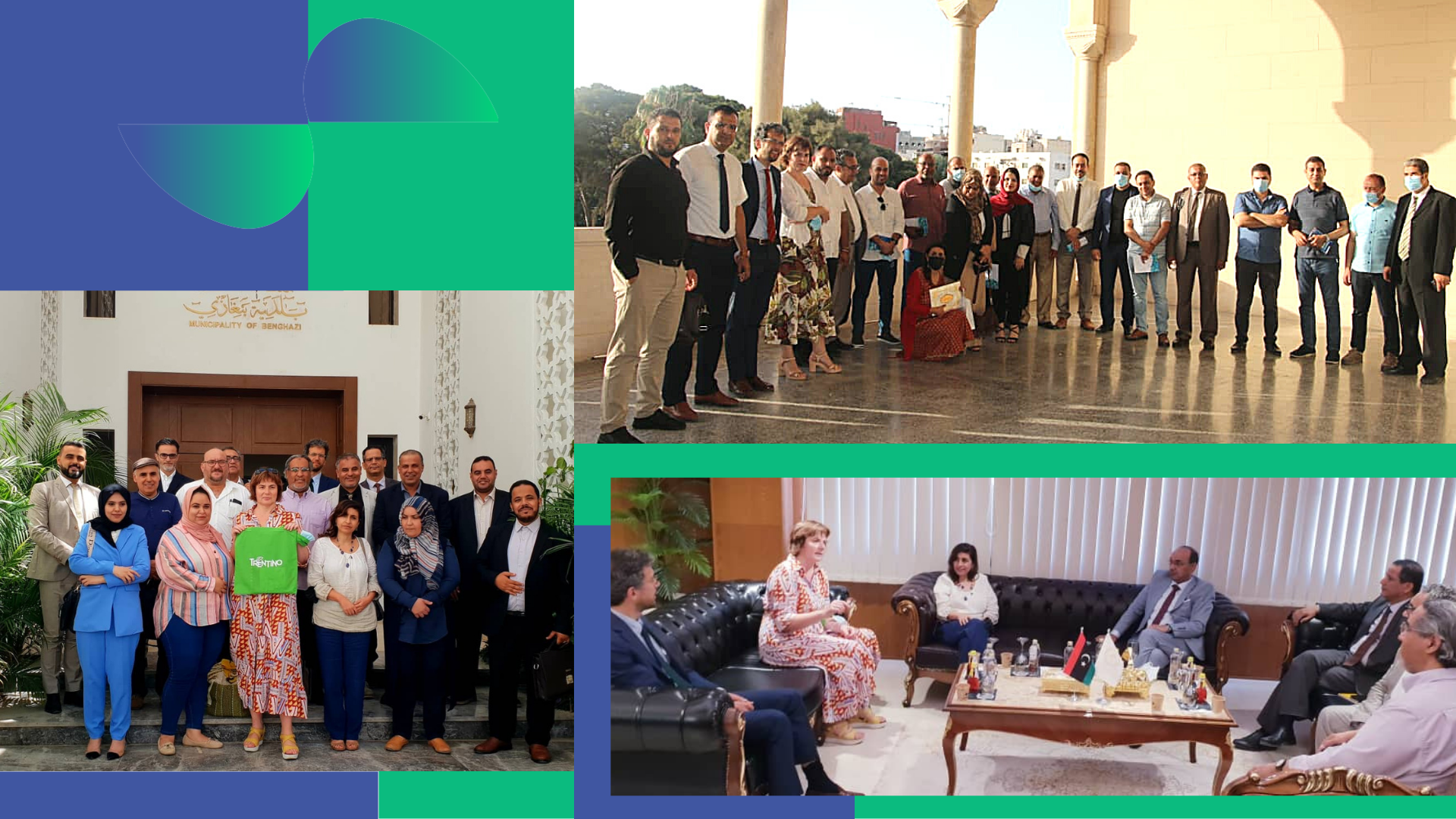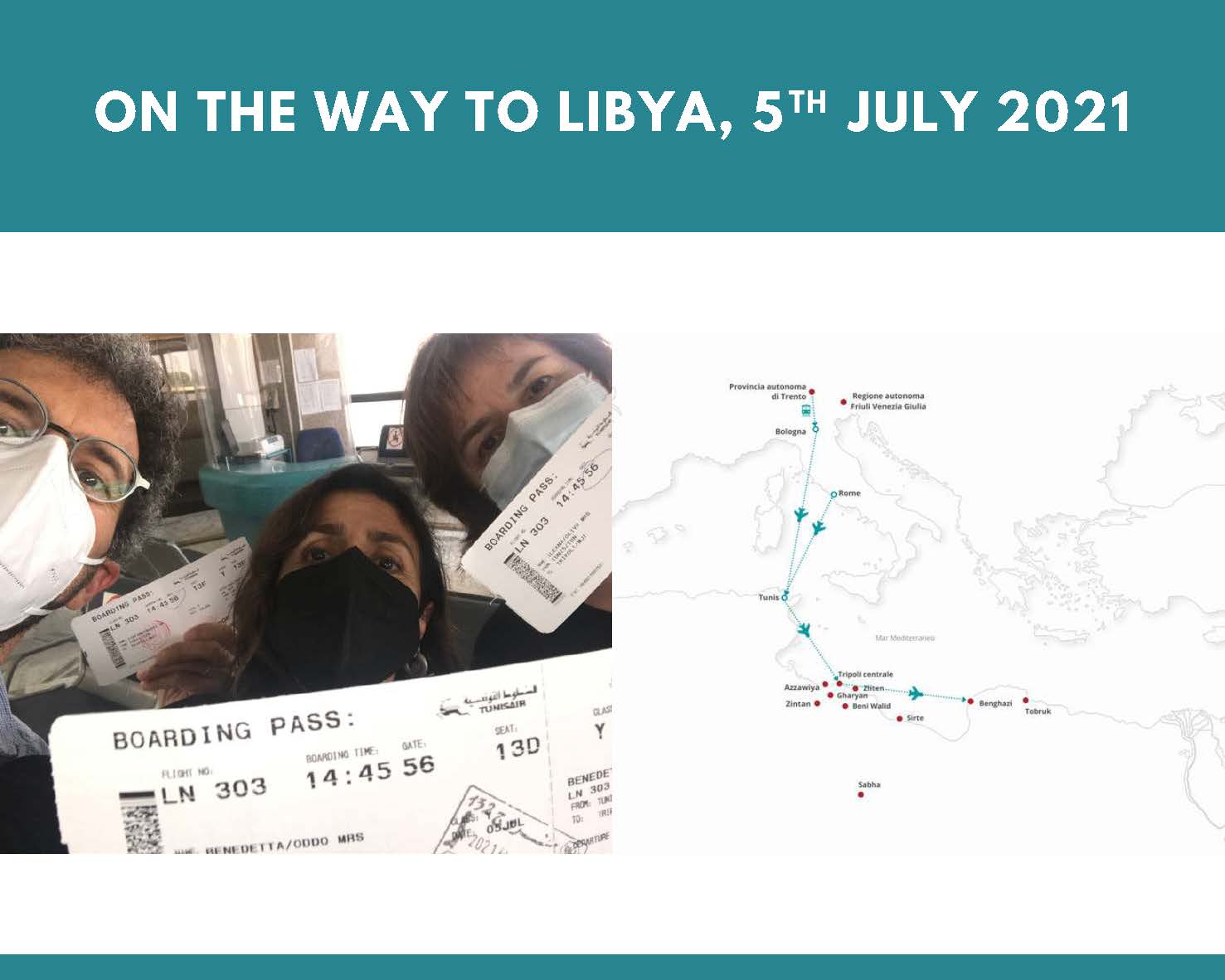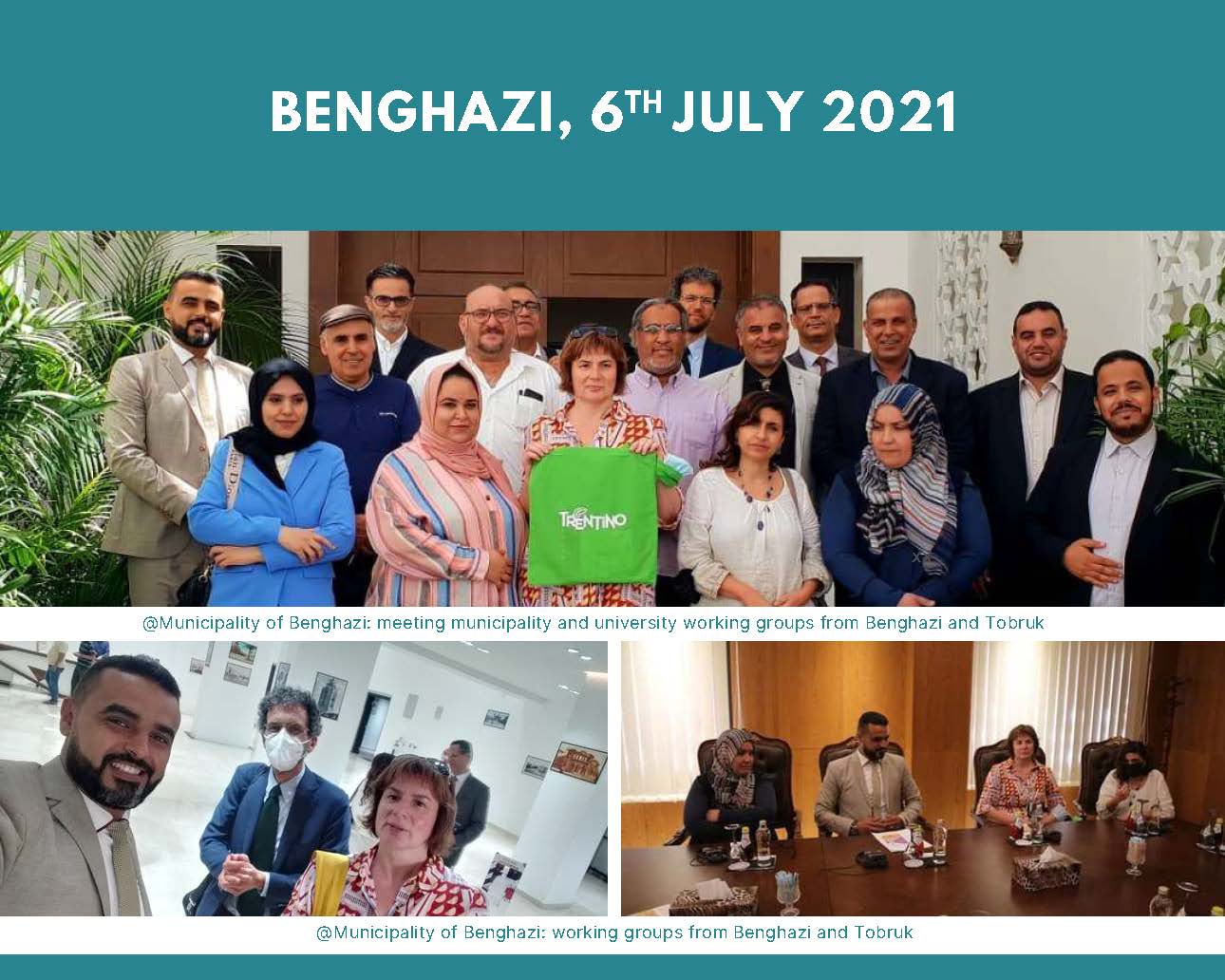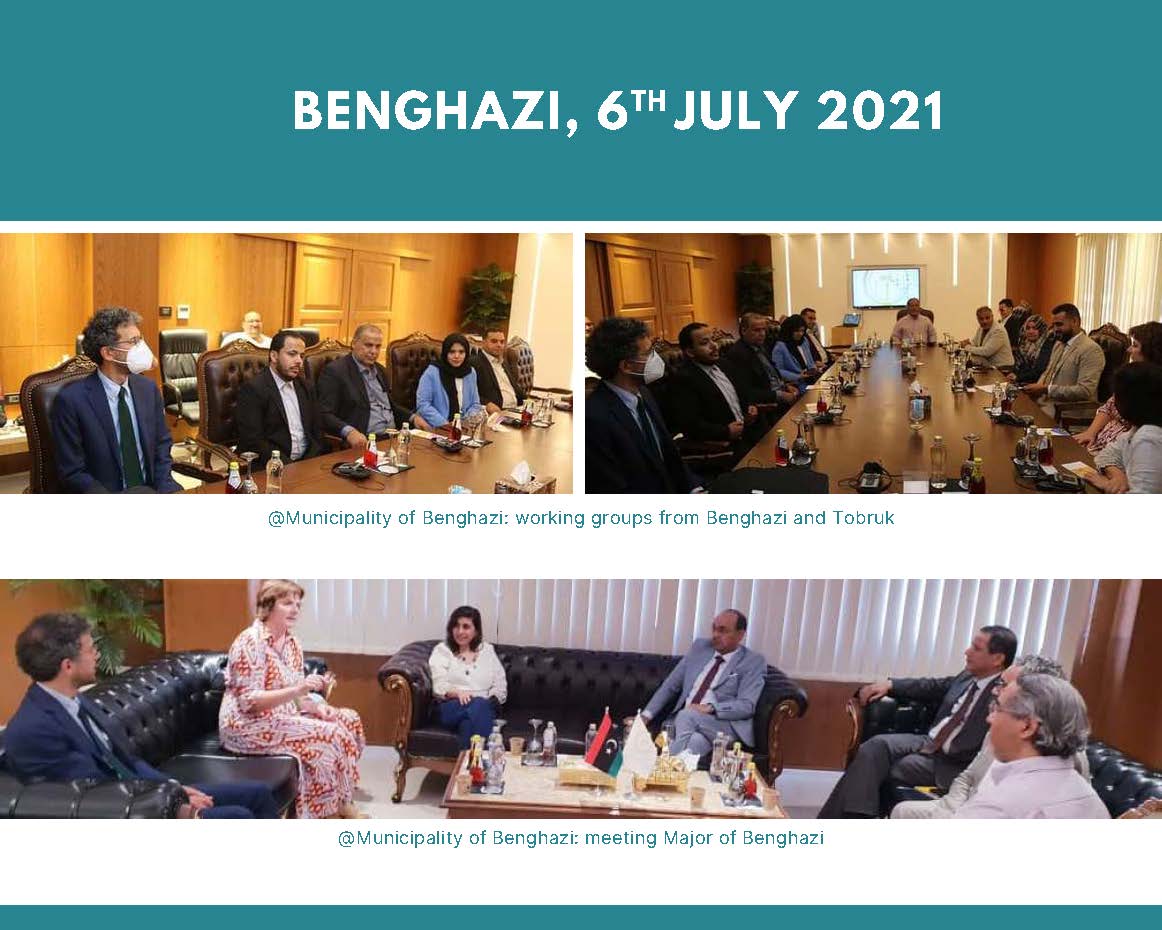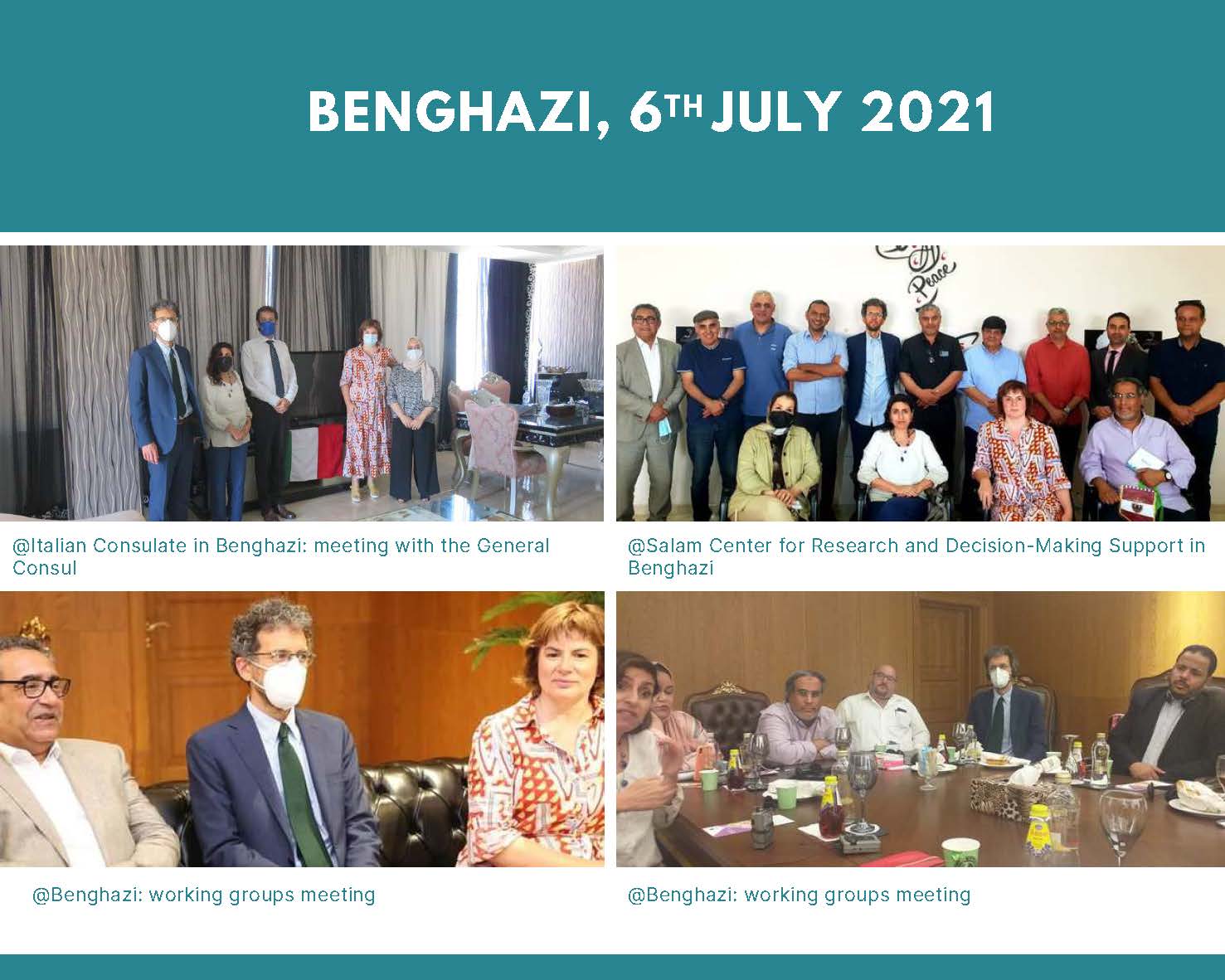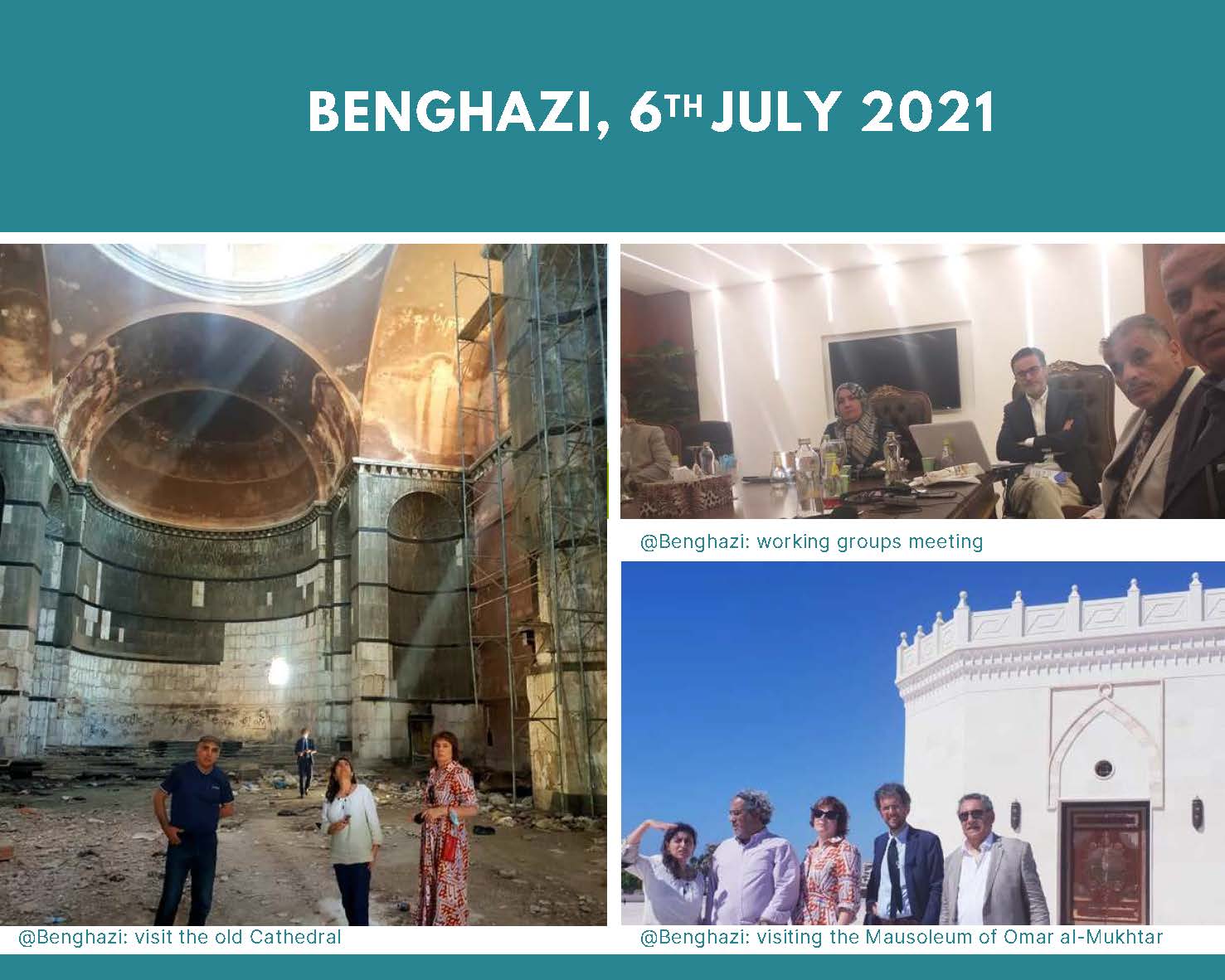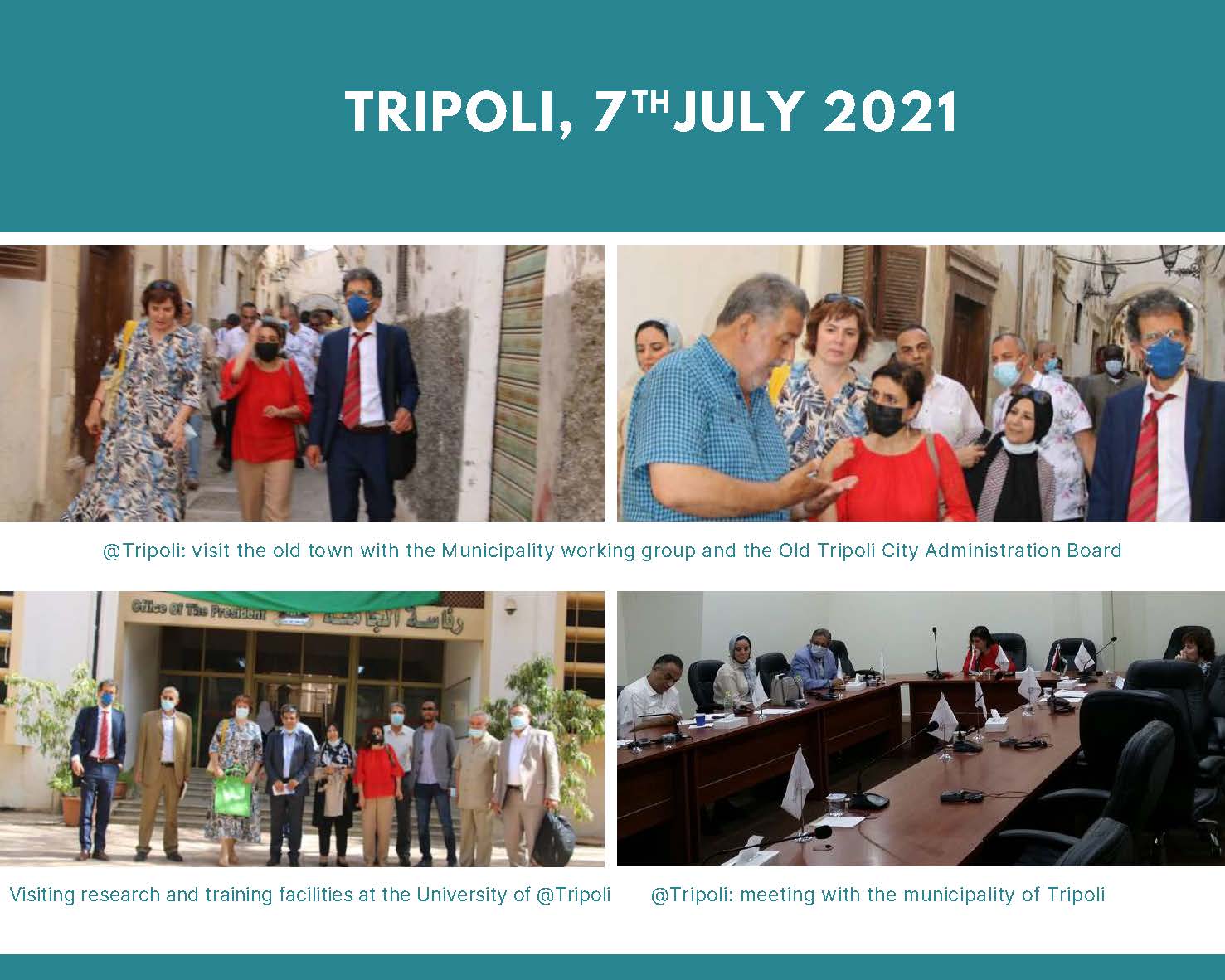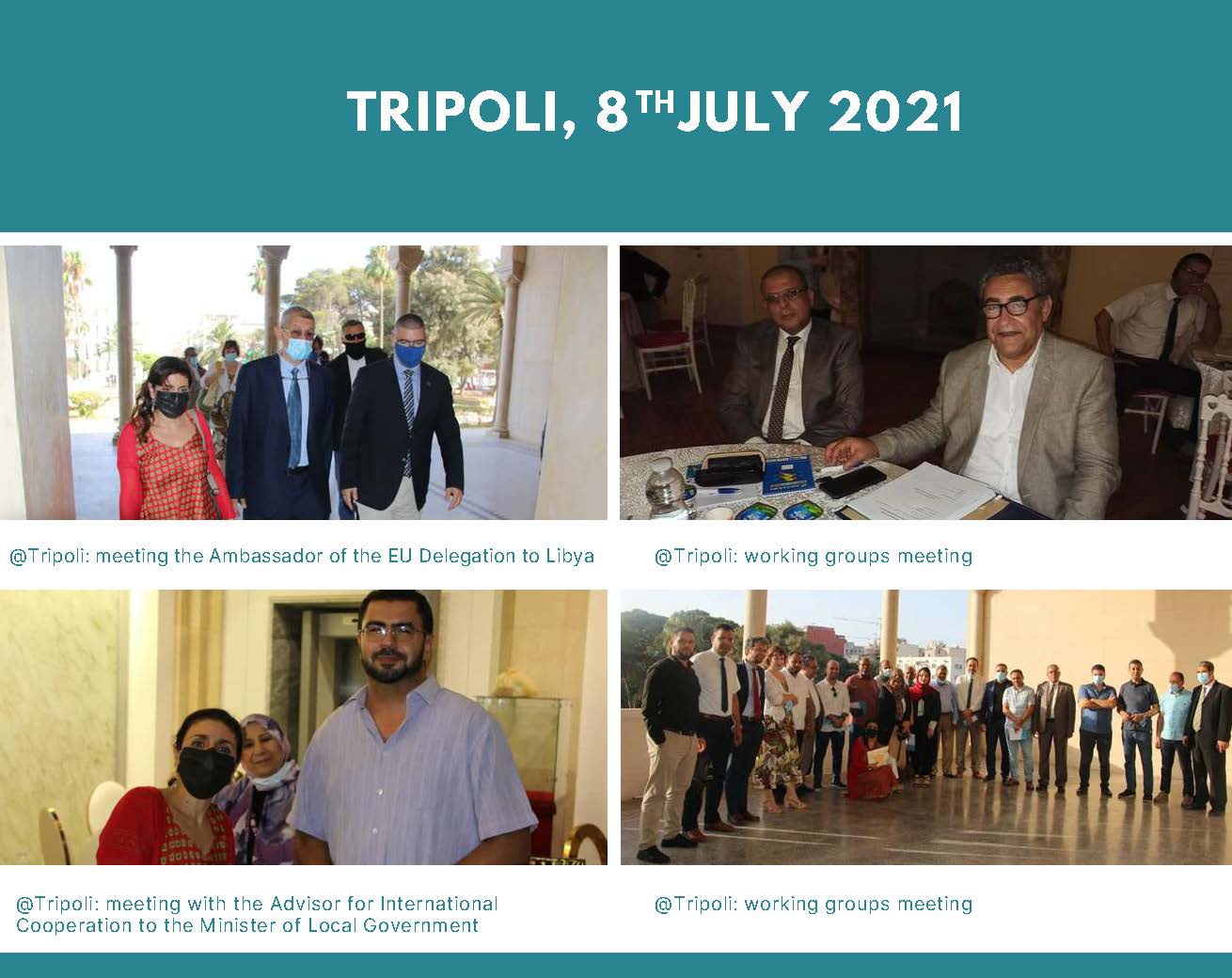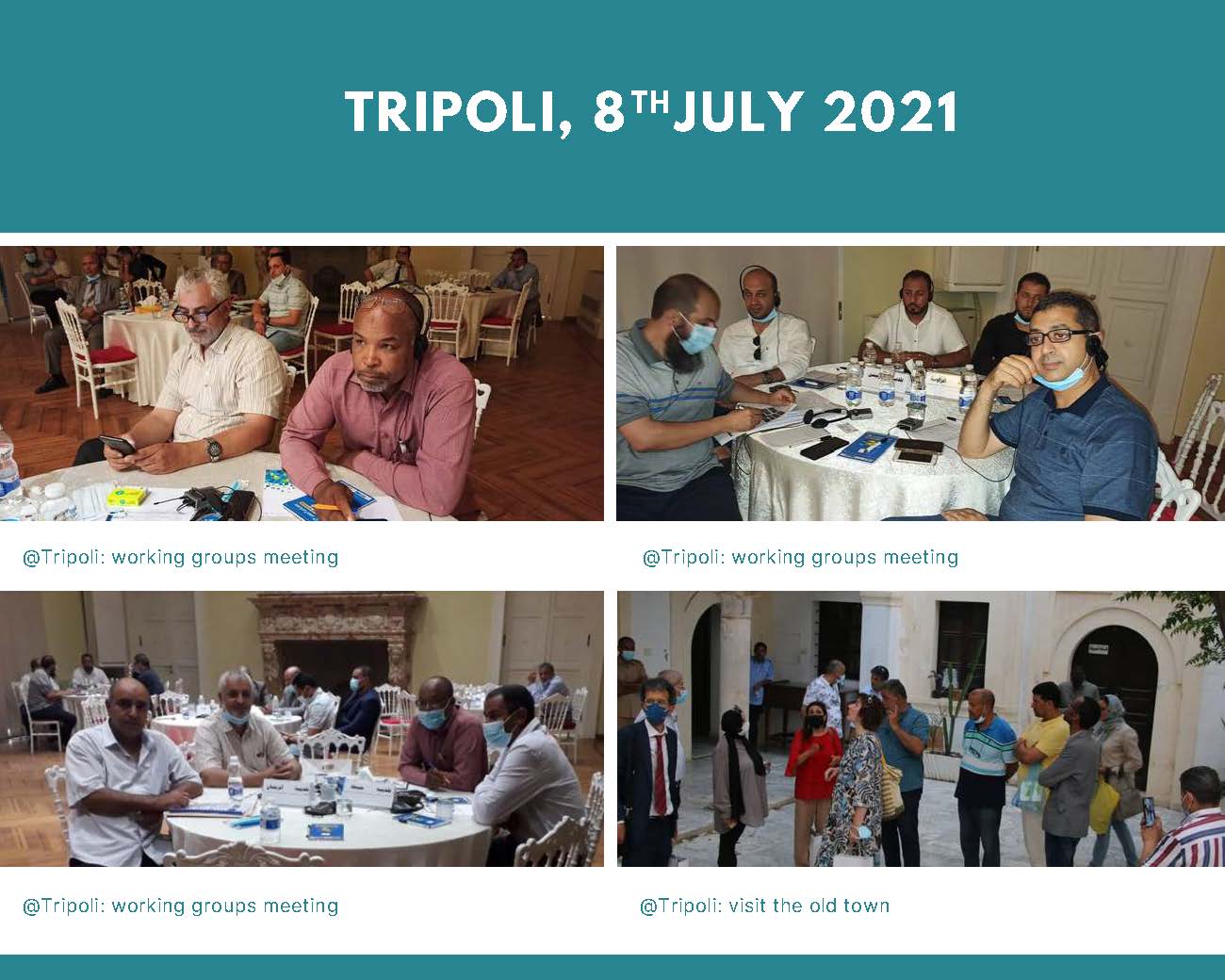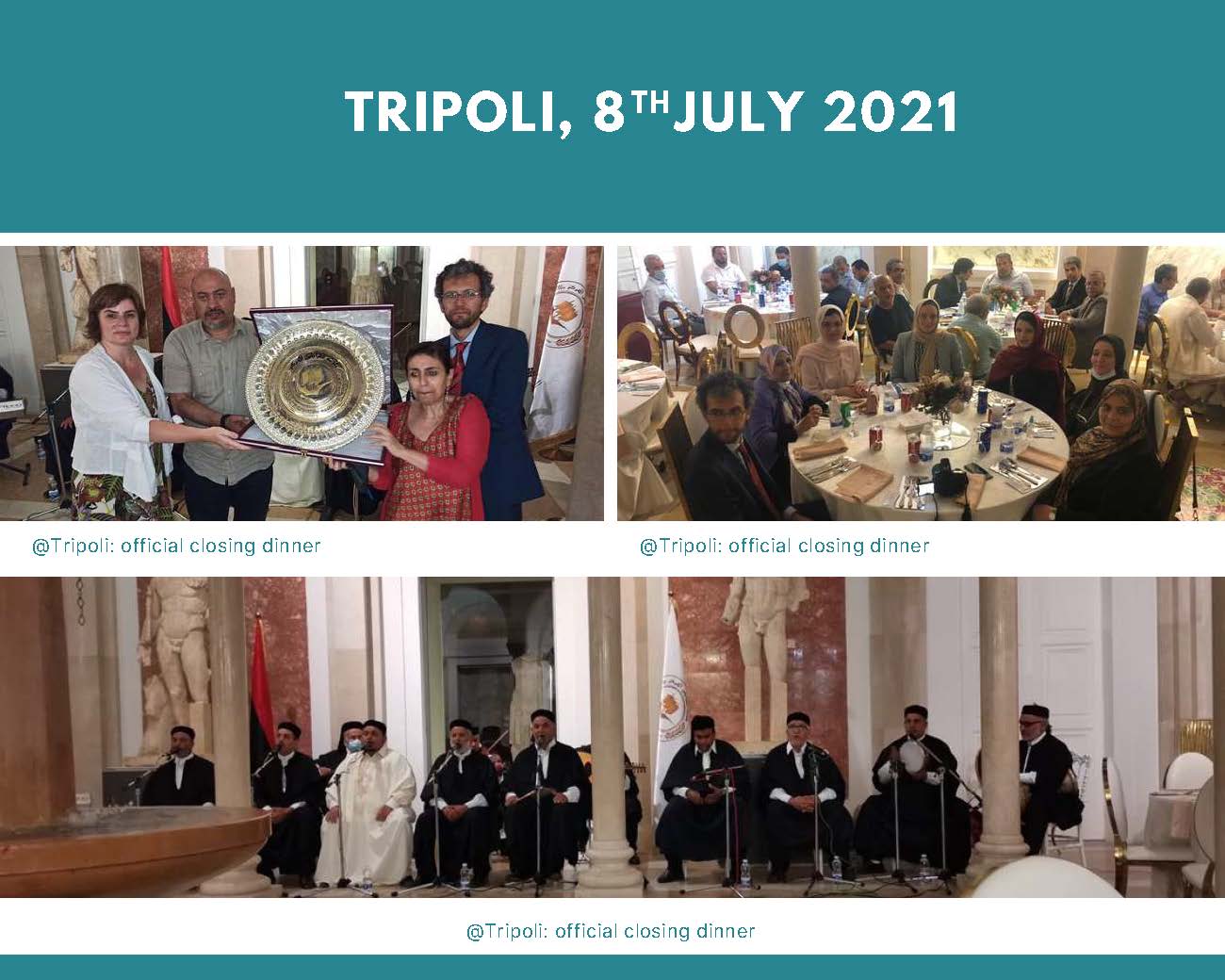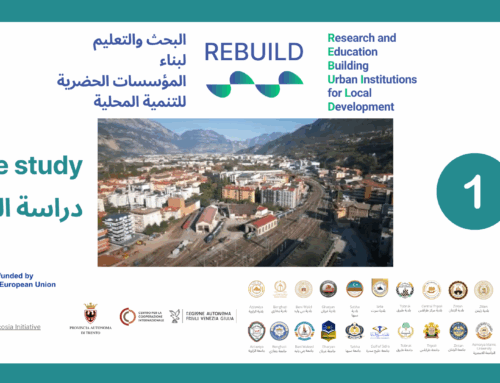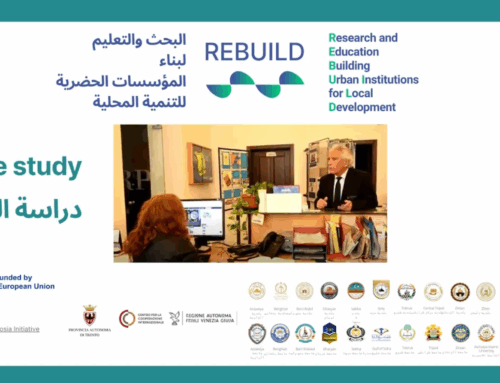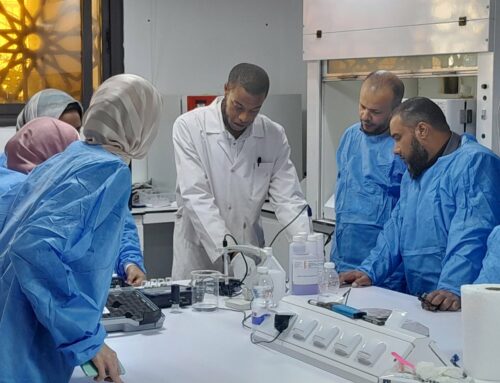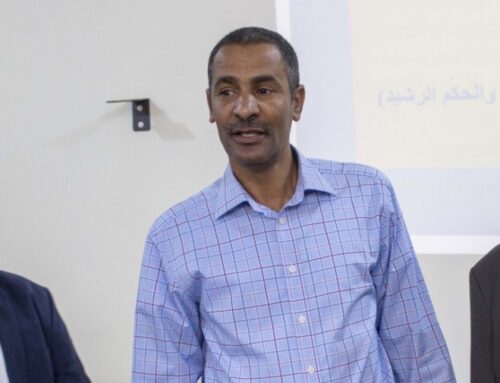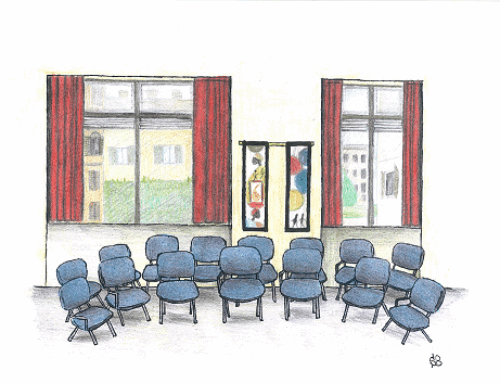Background
The project “REBUILD – Research and Education Building Urban Institutions for Local Development”, funded by the European Union, originates from and contributes to the Nicosia Initiative, a decentralised cooperation platform between Libyan and European local authorities promoted by the European Committee of the Regions and Libyan Municipalities to support local governance in Libya and favour the establishment of strategic peer to peer partnerships. One of the pillars of the Initiative is setting up a continuous learning system for Libyan local administrators and local elected officials to foster local development and enhance the role of local authorities. In the framework of REBUILD, all partners, the autonomous Province of Trento (leading partner), the autonomous Region Friuli Venezia Giulia and ten Libyan municipalities (Az-Zawiyah, Benghazi, Beni Walid, Ghariyan, Sebha, Sirte, Tobruk, Tripoli Centre, Zintan, Zliten) commit themselves to jointly work achieving the main objectives of the project:
- a long-term consolidated decentralised system of training on local development jointly defined with and delivered by qualified academic trainers from ten Libyan universities;
- the establishment of a community of practices to share national and international experiences and foster expertise exchange among Libyan municipalities and between them and peer European and MENA region institutions;
- the implementation of two strategic pilot projects in the fields of local economic development and basic services delivery, to translate into concrete action the acquired knowledge and skills during the training process.
Scope of the mission
Consolidate signed Partnership Agreements through a first political and technical field visit gathering all partnering municipalities both in Benghazi and Tripoli.
Objectives
- Consolidate partnership relations with concerned Libyan municipalities acting in the REBUILD project as equal partners and not just beneficiaries according to the Decentralised cooperation spirit of sharing common challenges and possible solutions.
- Meeting the newly established local coordination groups in Libya to start preparing first Technical Board and Steering Committee sessions by defining the main axis of the yearly action plan and by adjusting activities’ schedule to the real requirements of the context.
- Introducing the project and its strategy to National concerned authorities (Ministry of Local Government, Supreme Council for Local Administrations, Ministry of Foreign Affairs).
- Establishing synergies with the National strategy to train local administrators and local elected officials in Libya.
- Meeting Italian Ambassador, Italian General Consul in Benghazi and EU Ambassador to Libya to share project vision and mission and assure full cooperation with other ongoing projects supporting local governance in Libya.
- Introducing the autonomous Province of Trento and the reasons of its partnership implication with Libya to all partners.
- Favoring a sound understanding of all other projects implemented in the framework of the Nicosia Initiative in order to avoid confusion and overlapping as well as discussing conditions for future sustainability of the platform.
Mission Programme
European delegation participants
Ileana Olivo – Director of International Cooperation Unit at the autonomous Province of Trento
Stefano Rossi – Responsible of REBUILD project at the Centre for International Cooperation of Trento (affiliated entity of the Province)
Benedetta Oddo – Coordinator of the Nicosia Initiative, Liaison Manager for REBUILD project
Main Inputs
Benghazi
As a first note, it is important to mention that Benghazi municipality and its Mayor has hosted the REBUILD delegation from Italy and the representatives of Tobruk municipality throughout their stay in the city, assuring that all logistic arrangements were taken care of in order to make sure the activities were implemented under the best possible conditions, both in terms of security and effectiveness. Even if the time of the stay there was very short, they have been able to gather the most interesting interlocutors to meet; they have shown the delegation the criticality and the potential of the area and the excellence of some outstanding experts who are certainly a great asset for the country building. This warm and professional welcome has been overwhelming and has clearly shown the deep friendship and affection as well as a profound interest in this partnership.
The meeting with the Italian Consul General has been in a way unique since it has been the first official delegation received 11 years after its closure. The Consul has gathered more information about the project and the involvement of the Province of Trento. He has very much welcomed the Initiative also in its aspects linked to territorial economic development, especially concerning the fishery project, which could represent a great opportunity for Decentralised public private partnerships. The Consul also remarked that our visit was important to show that under certain organizational standards, these kind of missions in Libya are feasible.
The Mayor has opened the works in the conference room of the Municipality Hall. He has reiterated his full support to the Nicosia Initiative approach and the REBUILD project. He has been extremely appreciative for the partnership with the autonomous Province of Trento, which with its successful experience of self government could represent a role model of inspiration for future decentralization system to be set in Libya. The meeting with the REBUILD coordination groups of Benghazi and Tobruk first highlighted the necessity to link the project to the newly established National strategy set by the Ministry of Local Government and the Supreme Council of Local Administrations to train local administrators and elected officials in Libya also by establishing a Training Center on the model of the ones realized both in Tunisia and Jordan.
The main point of discussion has been how to match the use of university trainers as foreseen by the REBUILD project with the pool of municipalities’ trainers currently selected and trained in Tunisia by GIZ to constitute the future core expertise of the National Training Center as well as functioning as Decentralised trainers for neighboring smaller municipalities. All participants engaged in finding ways to maximize both project and National approach for an increased impact. The engagement of universities’ qualified trainers does not contradict the employment of qualified trainers available within the municipalities. On the contrary, it could reinforce training delivery capacity in a wider number of subjects needed to actually improve management skills and community outreach at municipal level.
The presentation of the experience of the Benghazi municipality’s Urban Observatory has suggested to encourage the reinforcement of this very successful model of information and data management for improving urban planning efficiency as well as spreading this good practice to other Libyan municipalities.
Exchange with fishery project focal points has allowed for setting first steps ahead in preparation of starting implementation in September. Focus has been required on the training component for young fishermen building up on the activity already implemented in the framework of the Nicosia Initiative in Fall 2020, which has targeted 100 young trainees from 5 coastal municipalities.
Libya Transparency Association has shared with the participants its full engagement in the second phase of the Local Integrity Units project funded by the Flemish Government in the framework of the Nicosia Initiative. The involvement of this very qualified partner will allow for speeding up the constitution of the civil society observatory network, which should be in place by the end of July.
The presentation of the Italian Decentralised system starting from the experience of the autonomous Province of Trento has taken place at Salam Center before a number of renowned personalities among diplomats, academics, entrepreneurs and former local administrators. Participants have very much
appreciated the efficiency of the system shown which is mainly due to highly qualified continuous training of its administrators and officials which makes of Trento the best managed Province of Italy, where 90% of its incoming resources stay in the territory and the remaining 10% goes to the State for common services and solidarity with most disadvantaged regions in the Country.
Concerning the project TAMSALL (Towards A new Multilevel Shared Approach to Libya Local Governance), funded by the European Commission and implemented by the regions Emilia Romagna and Friuli Venezia Giulia, side discussions held by the Nicosia Initiative’ coordinator have focused on the municipalities to be targeted. A fair balance in geographic distribution has been again reaffirmed and a number of cities have been suggested.
Tripoli
As per Benghazi municipality, it is important to mention that Tripoli municipality and its Mayor have hosted the delegation throughout their stay in the city, assuring that all logistic arrangements were taken care of in order to make sure thatwork was undertaken under the best possible conditions. They have meticulously organized each aspect of the program making sure the delegation would meet the right interlocutors and operate under the best circumstances. They have hosted and organized the working day with the REBUILD coordination groups coming from 7 other cities involved in the project, as well as the closing official dinner in the presence of all participants, Mayors and Governmental officials from the Ministry of Local Government and the Supreme Council of Local Administrations. This warm and professional welcome has been overwhelming and has clearly shown deep friendship and affection as well as profound interest in this partnership.
First day
At the National institutional level all partners have shown their support to the Nicosia Initiative and the REBUILD project with the encouragement to find ways to contribute with its specific added value to the overall National strategy of Local administrations capacity building. The time factor has been stated by all interlocutors as crucial in order to show immediate action on the ground.
At the Ministry of Foreign Affairs they have expressed full support for the Nicosia Initiative and the REBUILD project as well as full availability in assisting to facilitate implementation of whatever file falls under the mandate of the MFA. For instance, regarding the visa to Libya, Mr Wasim Al Burawi, Minister plenipotentiary and Head of Department of Civil Society Organizations has recommended to address his office an official letter requesting a two year work visa for those experts expected to be involved in the implementation of the project activities in Libya.
The visit to Tripoli University and the meeting with the President together with representatives of Tripoli municipality has further shown the deep cooperation between the two institutions and their common engagement in a successful implementation of the REBUILD project. With respect to institutional action limitations, the President has strongly recommended to stay within the competences assigned to each institution avoiding contrasts with the National level. He has informed the delegation that universities cannot at present sign any international protocol agreement with foreign institutions.
The meeting with the Italian Ambassador was the opportunity to elaborate more about the Italian and Libyan partnership in the framework of the Nicosia Initiative and the REBUILD project. The great hospitality offered by both Benghazi and Tripoli municipalities and the display of their high level organizational skills shown in preparing and accompanying this first mission, has been a clear sign of the deep engagement of the Libyan partners in this joint process and activities. The Ambassador will encourage synergies from all other Italian actors involved in supporting local governance in Libya.
At the level of the Libyan National institutions working on the set-up of the Local administrations Training Center and currently training trainers in Tunisia from selected municipalities across the country with the support of GIZ, convergence with proper added value has been encouraged, minding very much the time factor. It seems that making things happen in a very short span of time is considered the top priority at the moment. The meeting of all Libyan Mayors conveyed in Tripoli by the Prime Minister and the Minister of Local Government, coincidentally during the same days of the mission, to discuss transfer of competences and resources shows how the current Government is accelerating on the decentralization process and on all measures required to support it. On this specific point, partner Mayors of the Nicosia Initiative showed some
optimism compared to the disappointed promises of the past administration and seemed to have some concrete expectations about the meeting’s outcomes.
Concerning the Nicosia Initiative and its future, different options have been discussed for its institutionalization to become a permanent mechanism for inter municipal cooperation and Decentralised partnership. Furthermore, discussions took place with Mayors and NMCA (National Municipal Councils Association) representatives on how to further activate the National Association and facilitate its involvement in planned activities and projects.
Updates were provided also on all other ongoing projects in the framework of the Nicosia Initiative by its Coordinator. Concerning the Local Integrity Units project, funded by the Flemish Government and implemented by Transparency International Belgium and the Palestinian Association Aman, appreciation has been expressed by the involved partners for the way the phase two is being conducted. The involvement of high qualified Libyan experts as well as the Libya Transparency Association has given this sensitive process the necessary trust to proceed and produce all those identified procedures that would be likely adopted at the National level and eventually applied to all municipalities in Libya.
Concerning the project TAMSALL, funded by the European Commission and implemented by the regions Emilia Romagna and Friuli Venezia Giulia, discussion has focused on the targeted municipalities. A list has been suggested according the following criteria, following also the recommendations made in Benghazi: a more balanced geographical distribution in strategic location of the country, municipalities with influence in outreaching neighbouring smaller cities, municipalities where new local councils have already been elected to grant four years continuity, municipalities where mayors are particularly cooperative and active.
Moreover, Mayors have been informed that a CoR CIVEX event on the Nicosia Initiative will take place in Rome on December the 9th. All of them will be invited to attend as well as all NI focal points. More information will follow in September.
Second day
All activities have taken place at the King Palace for the whole day including the closing official dinner.
First meeting took place with the EU Ambassador to Libya to share feedback and projection on the project implementation and the ongoing visit. The Ambassador has appreciated the engagement shown by the partners and their incredible commitment to this joint endeavour. He has assured full support and availability of the EU Delegation to assist from more closely once in September the majority of the services will be transferred back to Libya from Tunis. He has shown the same availability to the Libyan partners during his opening speech.
The Mayor of Tripoli has opened the works of REBUILD local coordination groups asking for collective engagement for the success of the project. He has further stated that even being the new elected administration of the city nothing has changed in its commitment to the Nicosia Initiative and all projects linked to it, strongly believing in its added value and the strategic weight of its activities.
The representative of the Province of Trento has addressed the partners by explaining the reasons why Trento is very much interested in this partnership: being from one side the best managed local administration in Italy due to continuous high qualified training of its administrators and needing from the other side the enthusiasm of the newly born Libyan administrations to remind Trento that autonomy is a lively creature that needs constant adaptation to changing local and global environment.
The session started by going through the REBUILD inception document, which was sent in June to all partners, in order to clarify as much as possible all doubts and concerns linked to it. Modality of agreement with the universities has been the challenging element brought to the table since, as already learnt from Tripoli university President, universities cannot at present sign any international protocol agreement. Of course a solution needs to be found that also aligns with EU and Trento province’s procedures in case of major changes in project implementation modalities.
As in Benghazi, the main issue tackled by all participants was also how to articulate the REBUILD plan of action with the current National strategy to train local administrations. Linking up with the newborn training center was generally encouraged in order to grant to REBUILD outputs the necessary sustainability also in terms of curricula and training certificate recognition. Sub groups have been formed to come up with a road map for the first Technical Board meeting which will be organized by the end of August to finalize the yearly plan of action to be then approved by the Steering Committee to be held in Trento at the end of September
at the presence of the ten concerned Mayors who have been invited already to attend, provided that COVID Pandemic conditions allow.
The technical meeting among eight of the ten REBUILD territories/partners:
- clarified specific aspects of the project implementation, in particular: roles in curriculum definition, coordination between REBUILD and other training activities for municipalities’ staff, the importance of addressing gender issues in local governance, challenges in formally engaging the universities in the project and workload of universities’ project officers;
- shared participants’ expectations and vision on REBUILD outcome. Participants mentioned:a. networking: contributing and building synergies with national training initiatives, regional cooperation across the country (community of practice), consolidate the cooperation municipality-university at local level;
b. training: training people (in the universities and municipalities) who will be able to continue training delivery to municipalities also after the end of project implementation, define a standardized curriculum and training material which can be adapted by municipalities to the local context/priorities;
c. local governance: building competences for municipalities successfully leading the transfer of responsibilities at local level, increase the capacities to define strategies at local level;
d. service delivery: upgrading the quality of local public services; - collected recommendations on project implementation such as: co-construction of the training curriculum (PMU, universities and municipalities), combination of theory and practice in the curriculum, improve internal and external communication, disabled employees’ accessibility to training activities, appropriate balance between resources and workload on project staff, flexibility in scheduling training to municipalities (~1 month), e-learning activities required support (technical and adaptation to a power-cut situation), accreditation/certification/recognition of the TOT and training to municipalities.
Strong recommendations have been made towards an acceleration of the planned activities which might need a remodulation of the current project training structure to make sure that part of ToT to universities and first training to the municipalities happen during the autumn.
Side meetings with the fishery focal points have strongly reaffirmed commitment in working for the second phase as pilot within REBUILD and preparing all is needed to start activities in September. Main developments are happening at the National level that might accelerate finding the best conditions to get closer to the EU certification for Libyan fish export to European markets.
An important meeting has been the one with the Local Government Minister’s Advisor for International Cooperation, Mr Mohamed Abu Helga. The National strategy provides a great opportunity for the sustainability of REBUILD actions. There is full availability to upscale project’s results and make sure it will benefit all municipalities in the country. The main drive is to implement a decentralised training process, lead by the municipalities themselves (full partners) which takes advantage of local expertise (universities) and avoids duplications and lack of coordination with the National strategy and other international projects ; trying to harmonize approaches in the respect of each territorial specificity; working on systems that can survive any political changes; building institutions and not merely individual capacities for the country to stand on its feet. Time has been also mentioned here as critical for quick impact and consistency. Permanent coordination and information flow will be set up to make sure the process keeps running towards the same direction, possibly at an increasing speed. In order to do so, the idea of setting-up technical sub-group(s) has been discussed, with a role of facilitating the communication among partners/stakeholders.
Main Outputs
Photo gallery
Next appointments





